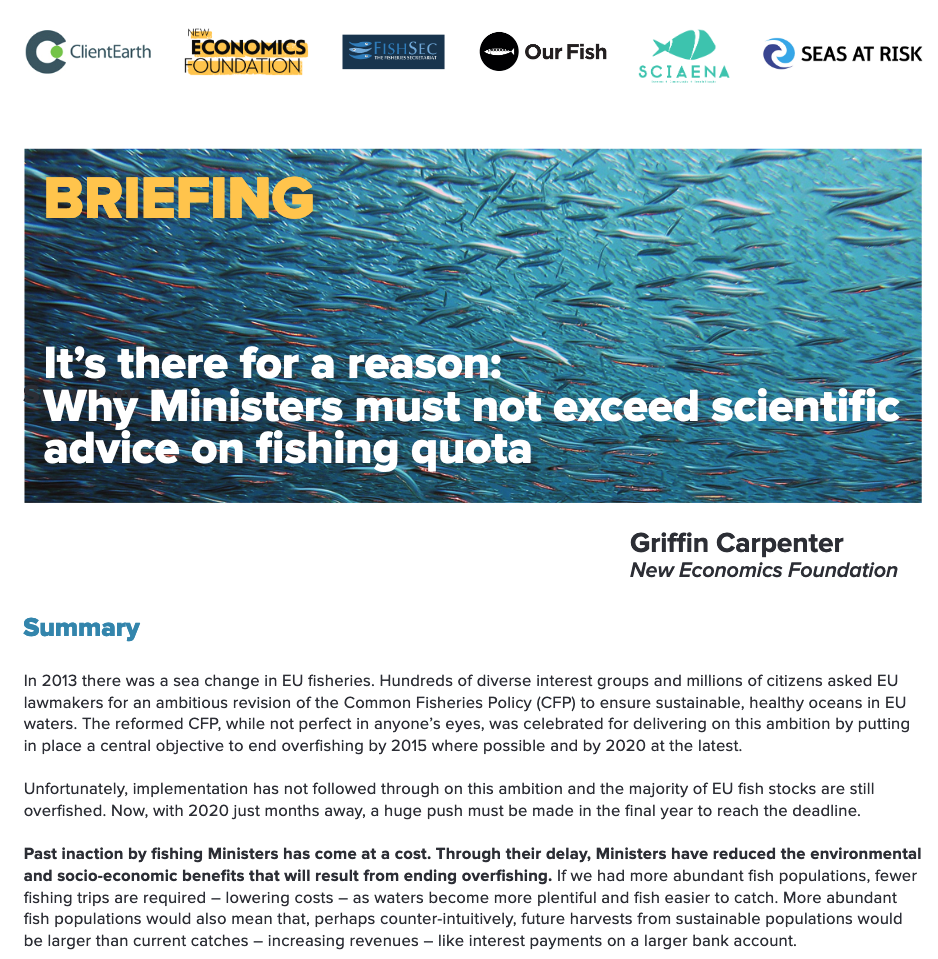It’s there for a reason: Why Ministers must not exceed scientific advice on fishing quota

In a briefing by Griffin Carpenter of the New Economics Foundation the reasons and benefits for Ministers not exceeding scientific advice are laid out and provide a timely reminder ahead of the December Council meeting at which quotas for the Northeast Atlantic and North Sea will be set.
The message is clear: “Past inaction by fishing Ministers has come at a cost. Through their delay, Ministers have reduced the environmental and socio-economic benefits that will result from ending overfishing.”
The briefing highlights one of the key commitments from the reformed EU Common Fisheries Policy (CFP) from 2013, an end to overfishing “by 2015 where possible and, on a progressive, incremental basis at the latest by 2020 for all stocks”.
We have now reached the deadline set in the reformed CFP to end overfishing but with four out of ten stocks still being overfished in the Northeast Atlantic and nine out of ten in the Mediterranean and Black Sea, celebration for the EU commitment, it seems, was premature.
The Council of Ministers which has the ultimate say in setting fishing quota has exceeded scientific advice in every six out of ten cases since the CFP reform. With the upcoming quota negotiations for 2020, this practice must end for the CFP objective to be met.
The briefing provides detail on the environmental benefits of ending overfishing, a greater abundance of marine life in a more resilient ecosystem. Moreover, the socio-economic benefits of ending overfishing are explained, more catches and fewer trips. In addition, the cumulative profits generated from sustainable management and the quota implications for a wide range of stocks are expanded upon.
Published on November 25, 2019